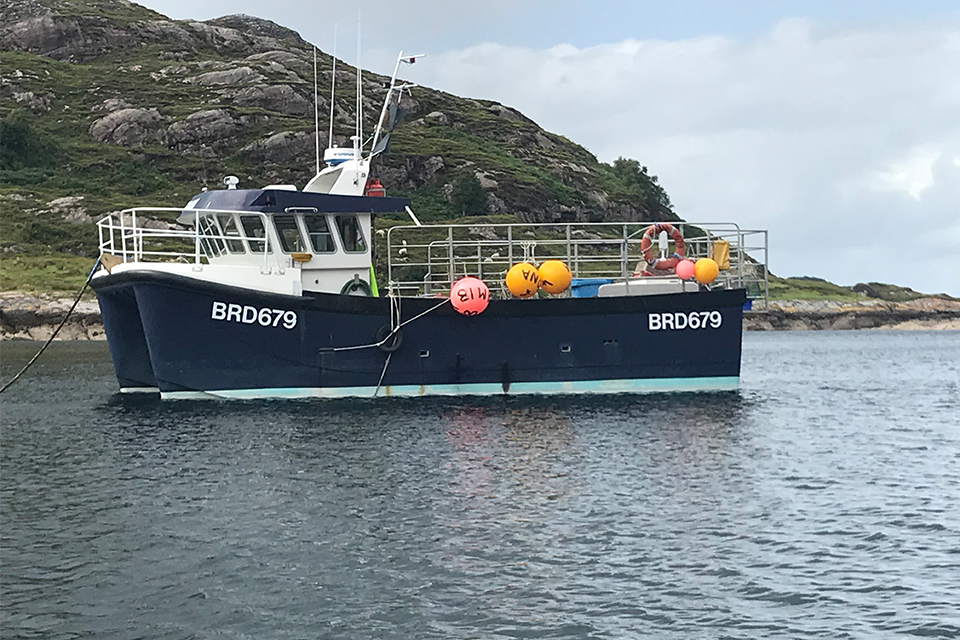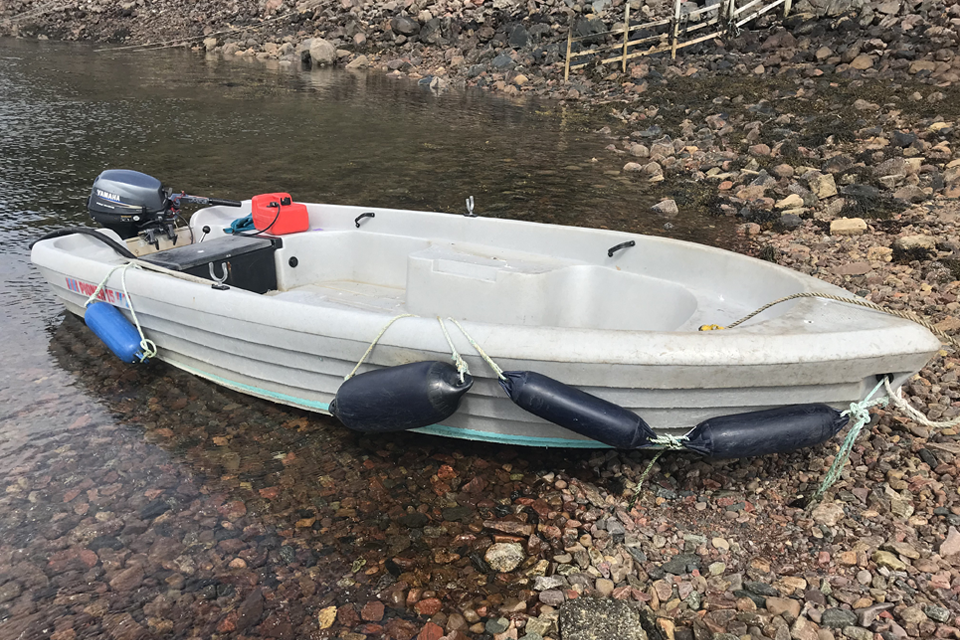Safety flyer to the fishing industry - Fram of Shieldaig
Published 28 June 2019
1. Summary
Fatal man overboard from the tender of Fram of Shieldaig in Loch Torridon off Ardheslaig, Scotland on 7 August 2018

The fishing vessel Fram of Shieldaig

Fram of Shieldaig's tender
2. Narrative
At approximately 0800 on 7 August 2018, a deckhand from the fishing vessel Fram of Shieldaig (Fram), entered the water while manoeuvring the vessel’s tender.
Fram was on its mooring off Ardheslaig in Loch Torridon and it was normal practice for a tender to be used by the crew to board and leave the fishing vessel. The tender was also used to transfer partially filled boxes of langoustines to and from the storage raft, which was anchored towards the entrance to the harbour.
The skipper, who was alone on board Fram, saw the tender approaching the vessel’s stern and moved to the port side to take its painter from the deckhand. After a few moments, when the tender had not drawn alongside as expected, the skipper looked over the side and saw the deckhand was floating motionless in the water between Fram and the tender, which was drifting away with its engine at tick-over.
The skipper was unable to lift the unconscious deckhand clear of the water, but did manage to secure him to a stowage raft before returning to shore to seek assistance. The deckhand was eventually retrieved from the water approximately 45 minutes after the accident. Despite medical attention, he could not be revived and was pronounced deceased at the scene.
The evidence indicated that the deckhand struck his head and was knocked unconscious as he fell into the water. As a result, the MAIB investigation concluded that he drowned because he was not wearing a lifejacket when he entered the water and the skipper was unable to recover him on board on his own. Regular manoverboard drills had not been carried out and therefore the difficulties involved in the recovery of an unconscious person by a single rescuer had not been identified.
The deckhand’s blood alcohol content was 276 milligrams per 100 millilitres; over five times the UK mandatory alcohol limit for seafarers and commercial fishermen. He was under the influence of alcohol when he began work, and this almost certainly contributed to his fall.
3. Safety lessons
-
The vessel’s owner had provided 150N automatic inflation lifejackets for use by the crew whenever there was a foreseeable risk of entering the water. However, a risk assessment had not been carried out for boarding and leaving the vessel using the tender, and its crew never wore lifejackets in the tender or while working on deck. In this case, the lifejacket would have kept the deckhand’s airways clear of the water and allowed enough time for the skipper to recover him ashore.
-
MSN 1871 Amendment 1 (F) - The Code of Practice for the Safety of Small Fishing Vessels of less than 15m Length Overall requires that monthly emergency drills are completed on board UK fishing vessels. Regular drills will help ensure that the required response to a crisis situation is conducted in the most effective manner.
-
Alcohol, even in small amounts, is likely to have an adverse effect on a person’s risk perception, reaction times and co-ordination. It will also reduce survivability times when immersed in cold water.
-
Fram was a well-equipped fishing vessel, and its owner had developed a safety management folder using the generic format provided by Seafish. The generic safety folder contained a standard alcohol and drugs policy statement, the intent of which should be enforced on board all fishing vessels.
Our accident investigation report is available at: https://www.gov.uk/maib-reports/man-overboard-from-potter-fram-of-shieldaig-with-loss-of-1-life
For all general enquiries:
Marine Accident Investigation Branch
First Floor, Spring Place
105 Commercial Road
Southampton
SO15 1GH
Email iso@maib.gov.uk
Enquiries during office hours +44 (0)23 8039 5500

